AS A SPECIAL treat in time for Diwali, the Royal Horticultural Society has given Kalpesh and Shailesh Solanki, Eastern Eye’s group managing editor and executive editor respectively, an exclusive guided tour of its famed garden at Wisley in Surrey.
The idea is to encourage more British Asians to discover the mental, physical and other benefits of gardening.
The tour was led by Matthew Pottage, who has been the head curator at Wisley for 20 years. He had a couple of messages for Eastern Eye readers.
One was: “Go plant a tree. Nearly every garden can have a tree. There’s always a tree for us.”
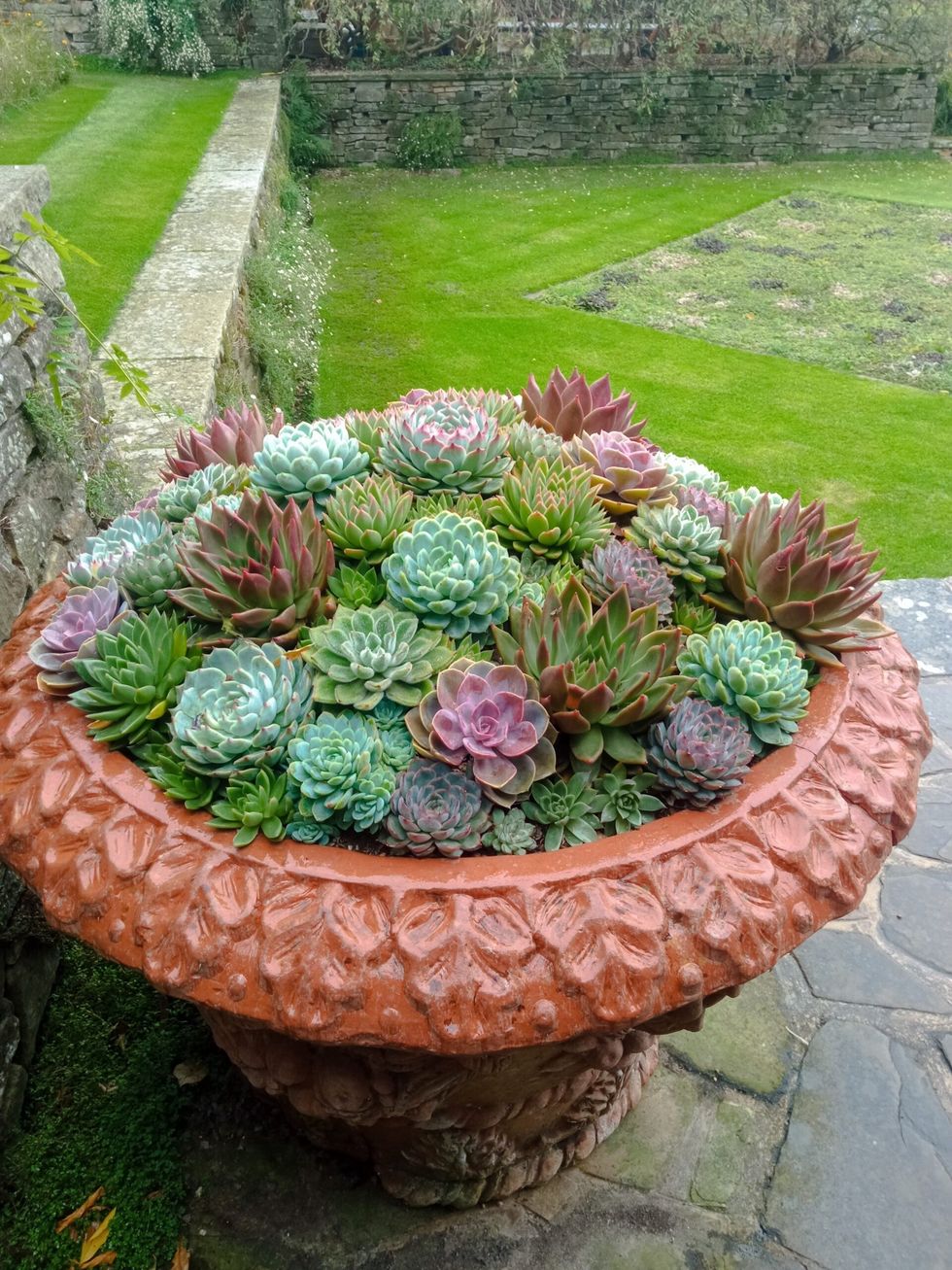
Another was to avoid paving the entire front garden and thus reduce the risk of flooding: “If you need to park your car in your front garden, that’s fine, but just don’t pave the whole thing. Have strips of paving that have gravel where the rain can go through – and you can still plant around it.”
Kalpesh remarked that an Indian spiritual leader, His Holiness HH Pujya Swami Chidanand Saraswatiji, president of the Parmarth Niketan Ashram in Rishikesh, had flown to London from India for a sermon at a family wedding earlier this summer.
“We’ve been talking to him about planting more trees,” said Kalpesh.
Pottage was accompanied by senior RHS colleagues, among them Hayley Monckton and Ed Horne, director and head of communications respectively; Helena Pettit, director of gardens and shows and Sarah Poll, head of shows development.
The tour included a visit to the “Old Lab”, which is now a museum but which was where science experiments on horticulture were done for a century. Attention was drawn to a black and white photograph of Janaki Ammal, who was born in Kerala in south India in 1897, worked at Wisley from 1946-51 and was brilliant enough to be headhunted to become the RHS’s first woman scientist.
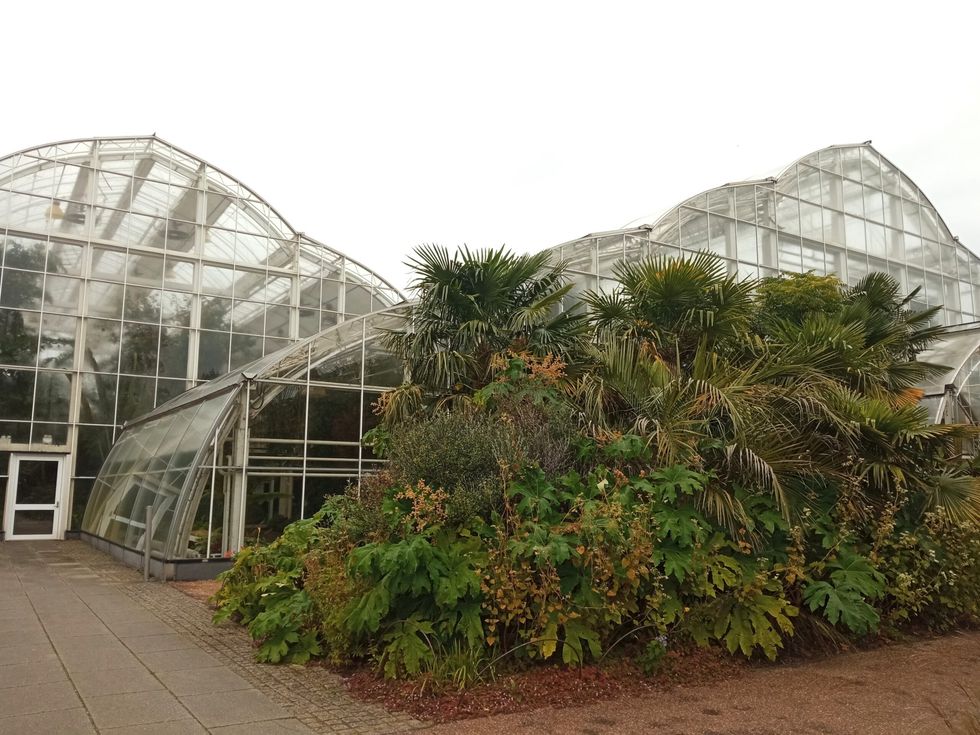
Paying tribute to her, Pottage said the magnolia trees, whose blooms she had strengthened, still flourished at Wisley. The Magnolia kobus ‘Janaki Ammal’ is named in her honour. British Asians have already started coming to Wisley, especially for garden festivals.
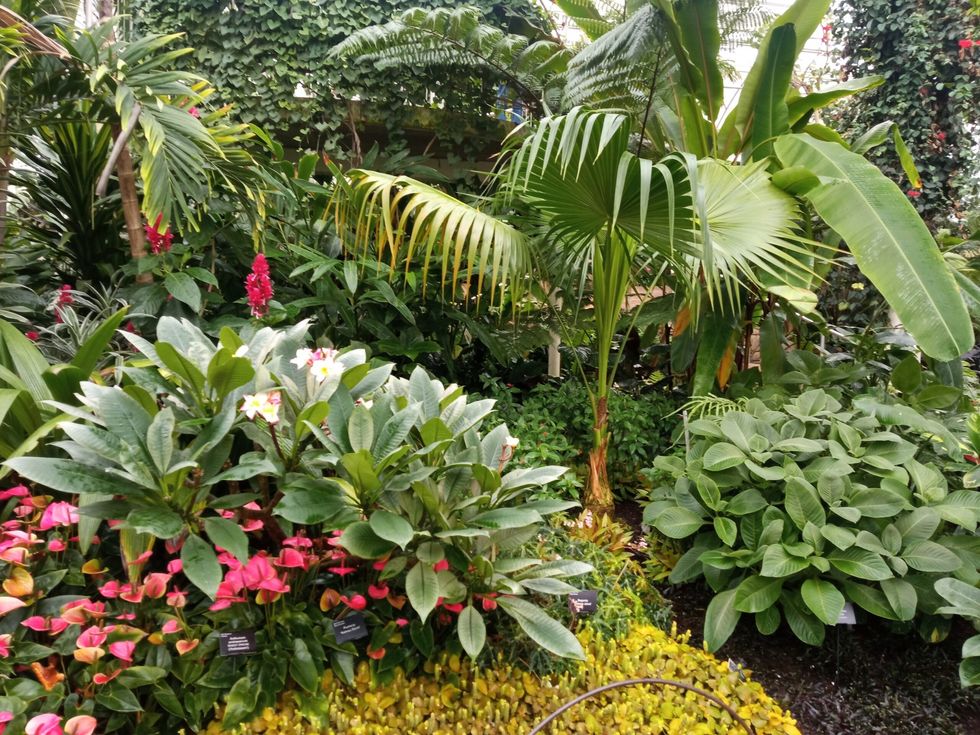
Pottage, who has the rigorous RHS master’s degree in horticulture, said: “Wisley is just over 200 acres in size. It’s the second most visited garden in the UK after Kew Gardens. We welcome about 1.4 million visitors a year. On a busy weekend, there can be between 5,000 and 8,000 people in a day.
“My team is over 100 full time gardeners and then I have students and apprentices. We’re training them up. And then I have a further 150 volunteers who give us a day a week of their time. It’s the most intensive of all the RHS gardens.”
Although the weather is deep into autumn, Wisley draws visitors through the year. Since RHS members can get in free, those who live locally tend to come as frequently as once a week to witness the changing seasons.
The tour began at the display of pumpkins, squashes and chillies from the “World Food Garden” at Wisley. Its ingredients have been used to make spicy dishes by celebrity Indian chefs during the “Festival of Flavours” at Wisley.
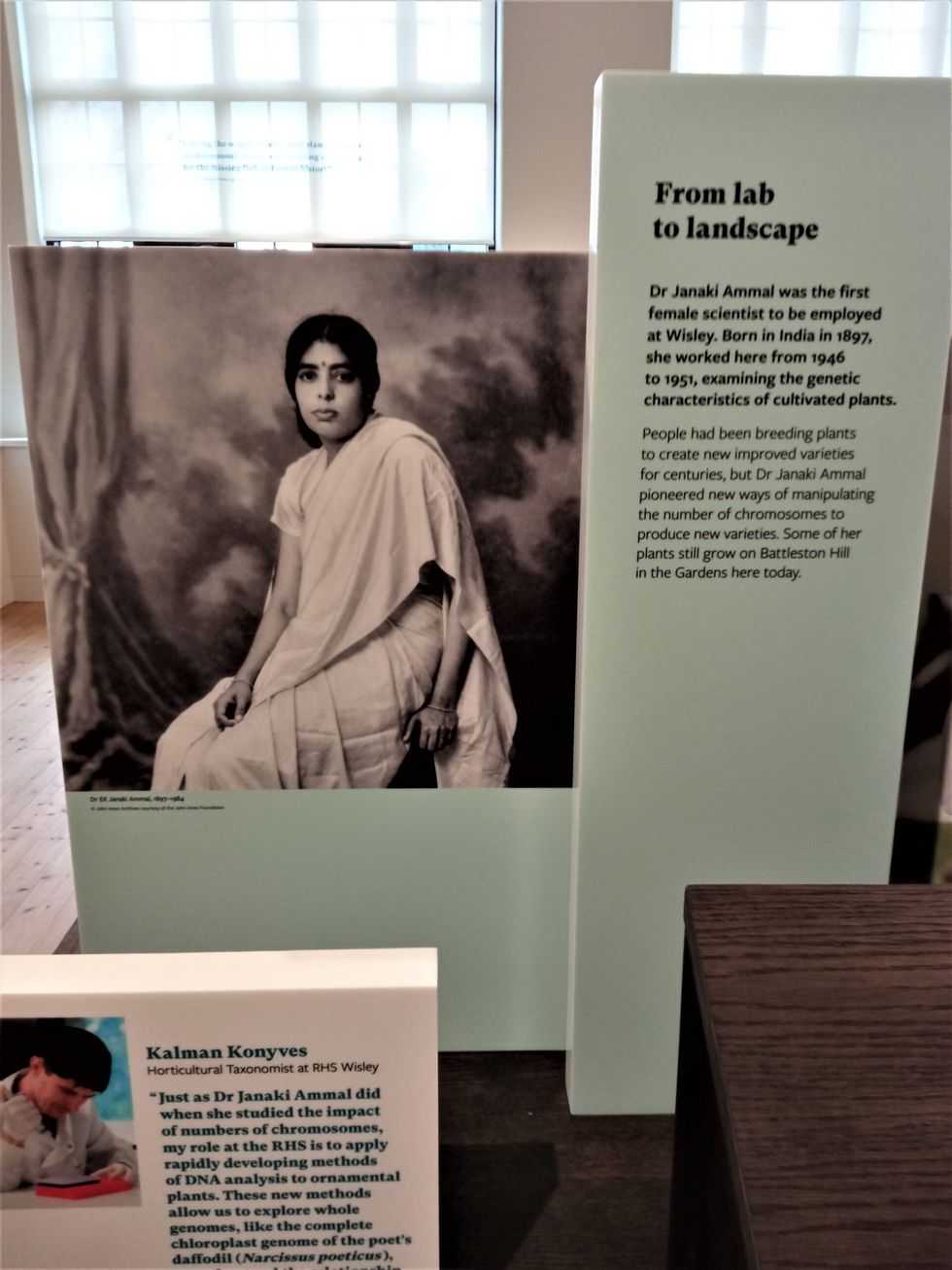
Cherry blossoms are a big draw. The pink blossom was brought from Japan in 1926 by an Englishman, Collingwood Ingram, and planted in his village garden in Kent. The pink blossom became almost extinct in Japan, where the purists had focused on the white variety. Ingram – nicknamed “Cherry Ingram” – came to the rescue by taking the pink blossom back to its country of origin.
“We have 150 of them that span either side of the (main) building,” said Pottage. “We do blossom tours through the garden of all the Japanese cherry blossoms.”
Pottage laughed as he pointed out a double pink blossom called Kanza: “The gardening public love it because it’s big, it’s in your face, it’s vulgar. Lots of furious people feel it’s too disgusting, it’s too much. But you know what? It’s the bestselling of all the cherries. I wanted it here at the entrance. But I was overruled by people with better taste.”
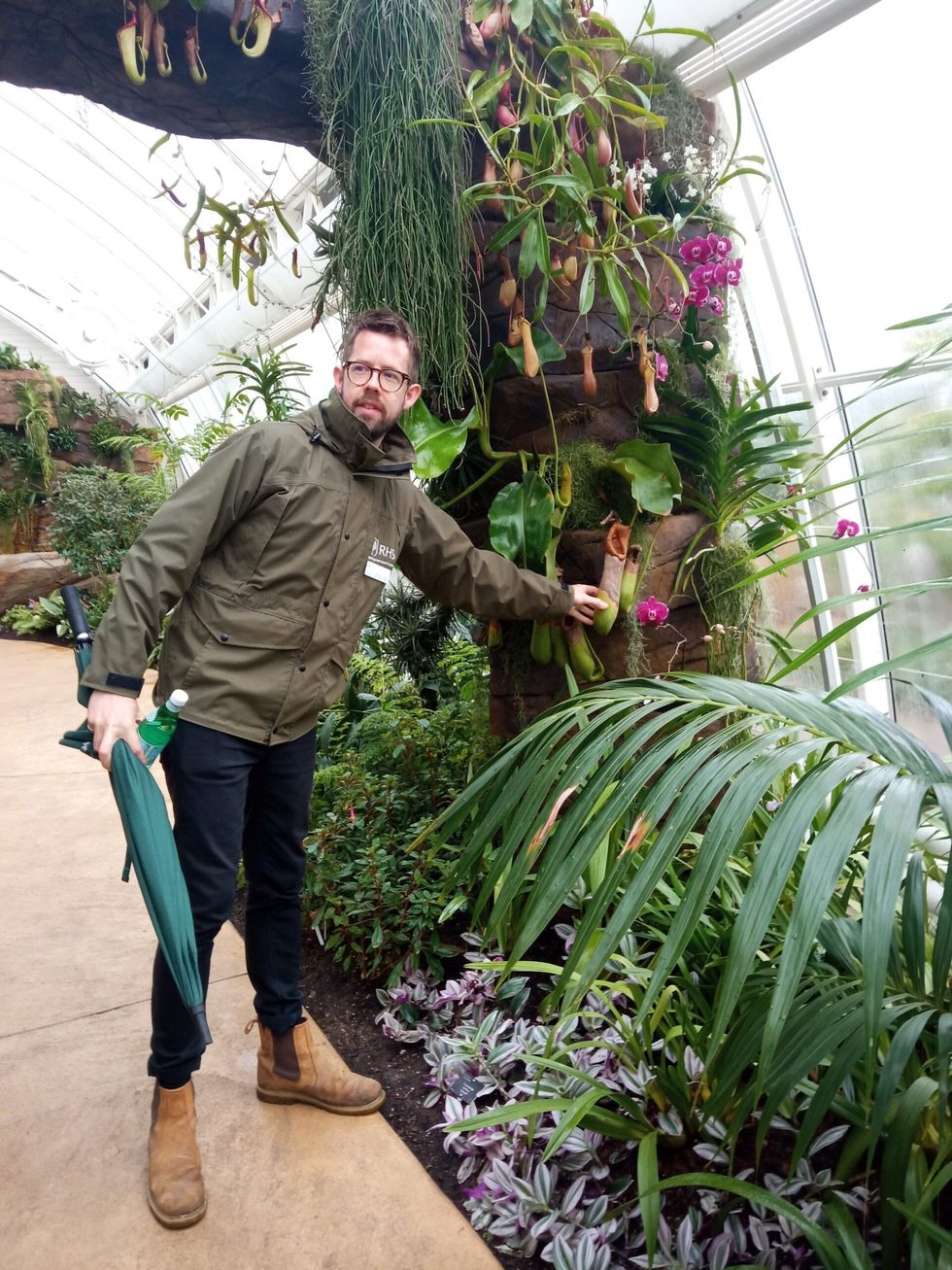
He urged caution when planting cherry trees in small gardens: “They are shallow rooted. So you have to be careful. It’s only ever a problem on clay soil. If you’re on sandy soil, it’s never an issue. But I wouldn’t plant too close to the house.”
The RHS discourages the use of chemicals to control weeds. “We’re calling it planet friendly gardening. We’re not saying to people have weeds everywhere. But you can have a more natural part of your garden, an area where you don’t need to be spraying chemicals. We’ve got an area that we call our wildlife garden, which we’re showcasing. Some people look at it and think this is great. This is where we should be going. Other people think this looks like a mess. We’re saying some weeds are native wild flowering plants.”
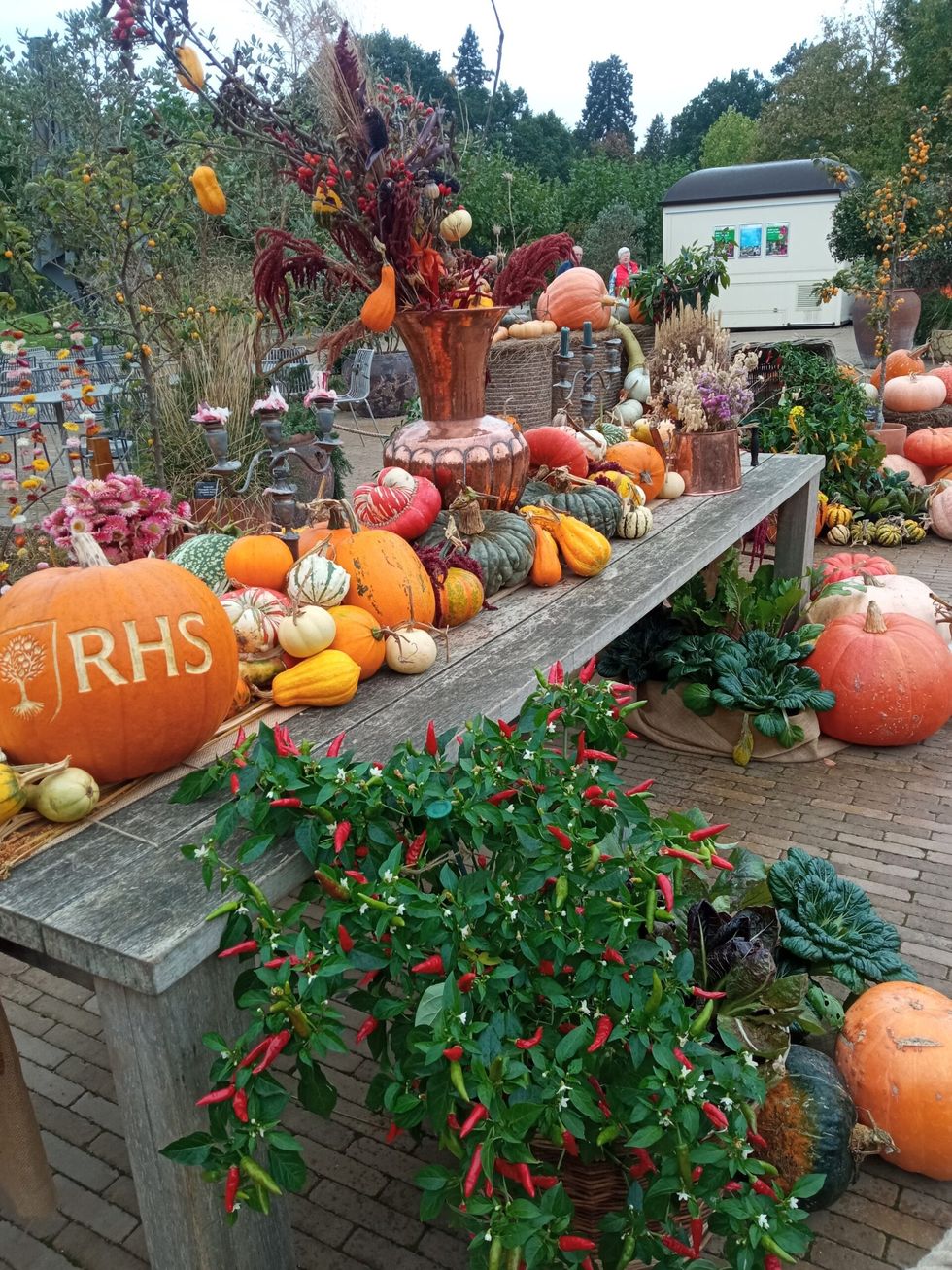
To Kalpesh’s question whether wild flowers attracted more bees, Pottage responded: “Bees are the most pollinating insects and they have been in decline. If we can move away from spraying chemicals and having plants that flower more profusely through the year, then, of course, as gardeners, we can help with the climate crisis. We can always put in more plants. We can all do our bit.”
The Glass House, which was a huge draw for children – they apparently love the “disgusting insect eating plants” – could also be used for weddings, corporate events and drinks receptions. “This is all lit up for Christmas.”
Control of the temperature and the moisture in the air meant it could house everything from bananas to cacti in the dry zone. “There’s lots of fruit in here – we’ve got chocolate, pineapple, banana, mango.”
Fifty years ago, it would not have been possible to grow banana plants outside in Britain. Now it was because of climate change. “There is a Japanese species of banana that’s much hardier now for a lot of people that grow banana,” said Pottage.
A recent addition was the Orchid House.
Pottage stopped and said: “This is our rock garden. This was finished in about 1911, so it’s a very, very early Wisley landscape. Rock gardens were all a passion in the Victorian era. Everyone’s now talking about prairies and meadows and wildlife gardening, but then it was all about rock gardening. It’s beautiful. It’s intensive, it’s always full of weeds, it’s very hard to maintain. We’ve got a team of six full time gardeners on here – and student volunteers apprentices on top of that.”
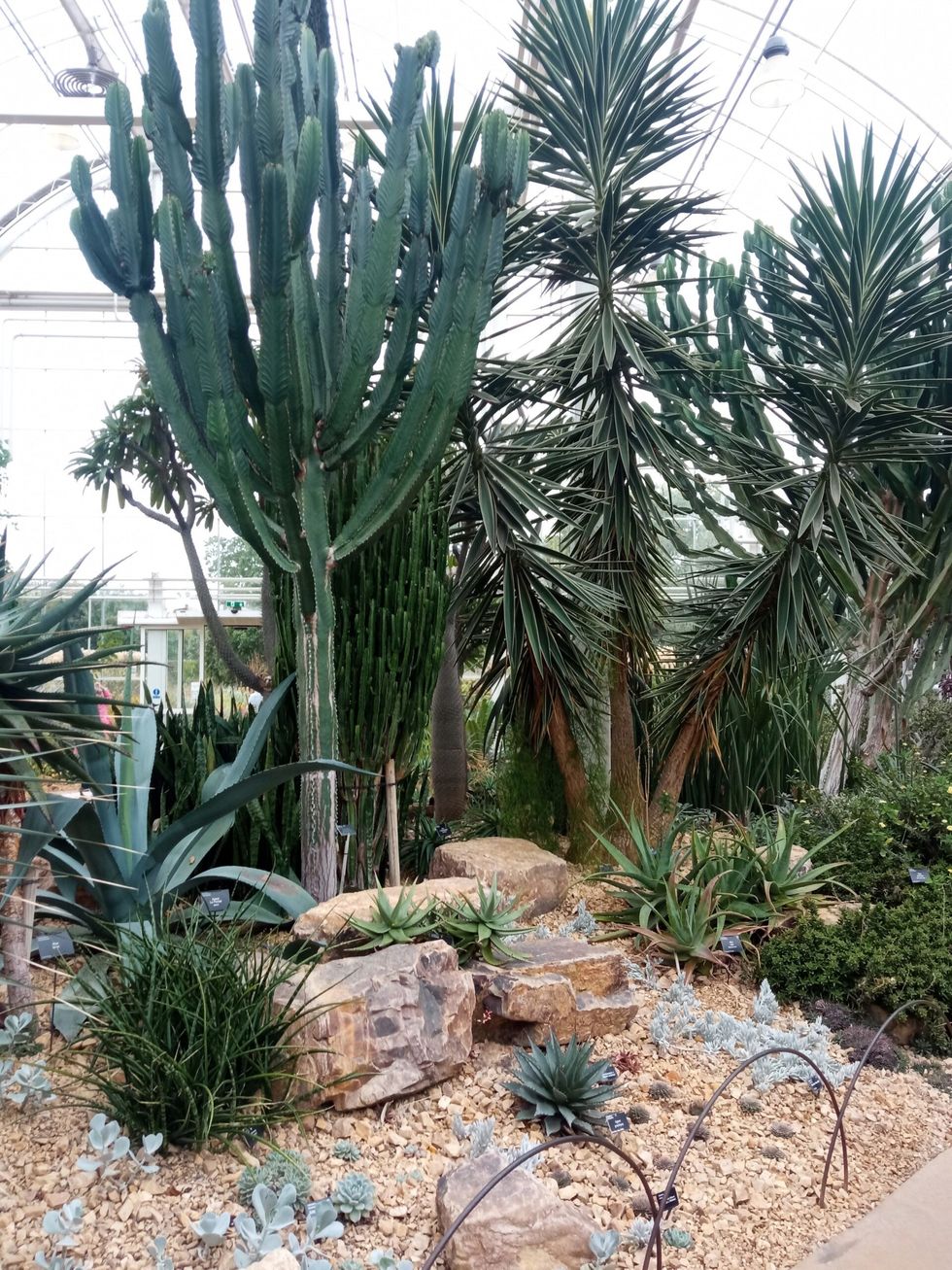
Pottage took the tour through the foliage garden, with a water fountain feature. “I’ve shown you only a quarter of Wisley. There’s the cottage garden, exotic garden, the wildlife garden, the food garden and the wellbeing garden.”
Wisley now has a long line of new benches, which have to be “robust” because often “six people squeeze on to them – and people are getting bigger, aren’t they?” quipped Pottage.
The benches, which cost £4,500 each, could be sponsored for £5,000 by individuals or companies. “It gives people a moment to remember someone.”
Sixty years on from the start of immigration from India, Pakistan, East Africa and other parts of the world, the RHS thinks the benches could be used as memorials for parents and grandparents who have passed away.






 Riddle is frequently seen supporting him courtside, including at the 2025 WimbledonGetty Images
Riddle is frequently seen supporting him courtside, including at the 2025 WimbledonGetty Images She has also used her platform to promote the sport among younger audiencesGetty Images
She has also used her platform to promote the sport among younger audiencesGetty Images Morgan Riddle is an influencer and media personality with over 1 million followersGetty Images
Morgan Riddle is an influencer and media personality with over 1 million followersGetty Images









 Apsana Begum
Apsana Begum
 Diddy trial jury raises alarm over juror and demands key witness testimoniesGetty Images
Diddy trial jury raises alarm over juror and demands key witness testimoniesGetty Images  Marc Agnifilo, attorney for Sean "Diddy" Combs, arrives at federal courtGetty Images
Marc Agnifilo, attorney for Sean "Diddy" Combs, arrives at federal courtGetty Images  Sean 'Puffy' Combs arrives at Manhattan Supreme Court in 2001Getty Images
Sean 'Puffy' Combs arrives at Manhattan Supreme Court in 2001Getty Images
